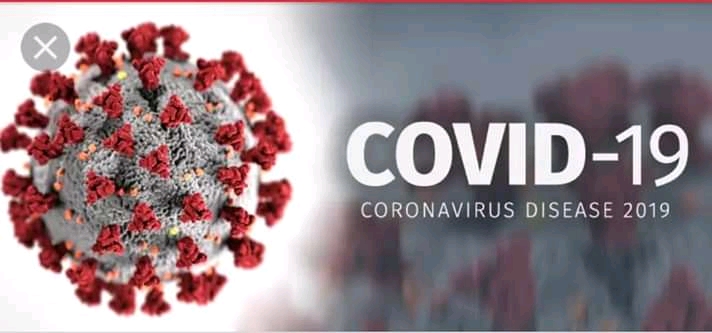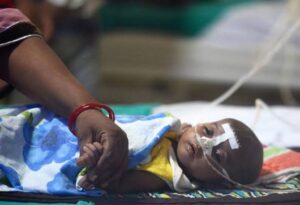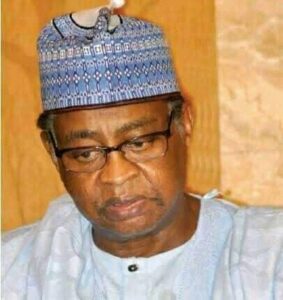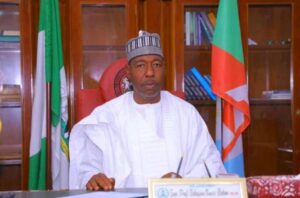
By Daramola Jacob
In a bid to slow the rate of spread of the virus, the Federal Government of Nigeria, on several occasions, imposed targeted lockdown measures in areas with rapid increase of Covid-19 cases. The states in which the federal government imposed the targeted lockdown included Lagos, Ogun, and the Federal Capital Territory in Abuja. Some States in the country imposed partial lockdown and closure of interstate boarders. Curfews have also been introduced in all the states nationwide.
Various reports shown that the government extended a full lockdown in Kano State, the northern Nigeria economic hub where authorities are investigating a spate of mysterious deaths. Kano state has the second highest number of confirmed cases in country, after Lagos, the commercial capital.
As part of measures taken during the lock down period, President Mohammad Buhari, announced an expansion of the initial number of households that would benefit from the direct distribution of food and cash from 2.6 million households to 3.6 million households, whom he described as most vulnerable in the society. He, therefore, directed the Ministries of Industry, Trade and Investment; Communication and Digital Economy; Science and Technology; Transportation; Interior; Health; Works and Housing; Labor and Employment; and Education, to jointly develop a comprehensive policy for a Nigerian economy functioning with COVID-19 pandemic.
There are, however, lamentations trailing the distribution of government palliatives by the masses. For instance, a national newspaper, Business Day on April 19, 2020, reported thus: “It is lamentation and bitter wailing in Lagos and parts of the country as Nigerians complain that the stimulus packages announced by the Federal and Lagos State governments to cushion the effects of the lockdown imposed on some States and the Federal Capital Territory to contain the further spread of the coronavirus (COVID-19) pandemic have not been sincerely deployed.”
According to the newspaper, the citizens alleged that the process of distribution of whatever that may have been made available for that purpose had been politicized.
It could be recalled that the Federal government had earlier said the palliatives were for the most vulnerable in the society, though there were no laid down parameters for determining the most vulnerable. For example, in Edo State, most of the residents claimed they were not aware if there was any distribution of palliatives in their localities. They alleged the palliatives were hijacked by politicians who now turned themselves to be vulnerable. The state’s leadership borrowed a leaf from the federal government by saying that the palliative packages were for the most vulnerable.
The questions that loomed large and which both the federal and state governments are unable to answer is: who are the vulnerables? Is it that the federal government was unable to evolve a transparent process to ensuring fair distribution of the palliatives? Is the idea of undefined vulnerability a ploy by the governments to hijack the palliatives for their party faithfuls? What about those people that lost their jobs or income, are they to be regarded among the vulnerables?
Vulnerability in the common sense is when an individual is unable to cater for himself/herself or family as a result of a prevailing situation he/she is being faced with. This is in line with the precise but all encompassing definition of vulnerability given by James M. DuBois.
According to DuBois, “Ordinarily, vulnerability simply refers to susceptibility to harm. In this sense, everyone is vulnerable because all human beings are capable of being harmed in many different ways.”
The Belmont Report refers to five basic categories of harm: social, economic, legal, psychological, and physical. For example, psychological harms may range from mild embarrassment to a psychotic relapse with significance resultant harms across all other categories: economic (lost employment), legal (e.g., being declared incompetent by a court, social (e.g., through stigma),….”
The above definition helps in butressing the fact that persons that have been asked to remain indoors as a result of Covid-19-induced-lockdown are vulnerable; persons that lost their jobs are vulnerable; those that are locked behind bars are vulnerable; those that are facing one illness or the other are vulnerable; etc.
These groups ought to partake in the distribution of palliatives of the government. Thus, the governments are supposed to implement schemes that will help cushion the effects of the lockdown for the broader groups of the vulnerable.
Although, the Federal Government of Nigeria rolled out the following palliative measures for targeted groups: three months interest holidays for those holding Tradermoni, Marketmoni, and Farmermoni loans issued by the Bank of Industry, Bank of Agriculture, and the Nigeria Export and Import Bank.
TraderMoni is a loan program of the Federal Government, created specifically for petty traders and artisans across Nigeria. It is a part of the Government Enterprise and Empowerment Program (GEEP) scheme of the Federal Government, being executed by the Bank of Industry. With TraderMoni, an individual can receive interest-free loans starting from 10,000 Naira (exchange rate US $1 = N400) and growing all the way to N100, 000 as the person pays back.
Beneficiaries get N10, 000 as the first loan. When they pay back the first loan, they immediately qualify for a second loan of N15, 000. After payback of the second loan, they qualify for a N20, 000 loan, and then N50,000, and then N100, 000.
MarketMoni, also known as the Government Enterprise and Empowerment Program (GEEP), issues interest-free loans to market women and traders, artisans, youth and farmers. It is one of the social intervention programs of the Federal Government, and is being executed by the Bank of Industry. MarketMoni has kicked off disbursements to its early set of beneficiaries and is expanding across the country.
Beneficiaries receive loans ranging from N10,000 to N100,000 per applicant for as long as 6 months. MarketMoni attracts no interest except a one-time 5% administrative fee. So far, over 24,000 beneficiaries have accessed MarketMoni..4
FarmerMoni is a Government Enterprise and Empowerment Programme (GEEP) Initiative created to boost the Nigerian economy through leverage and access to finance for farmers. FarmerMoni is designed to help petty traders expand their trade through the provision of collateral free loans. The loans are repayable over a period of six months.
Under the scheme, beneficiaries can get access to a higher facility ranging from N300,000 to N2,000,000 when they repay within the stipulated time period.
However, the measures put in place by both state and Federal Government to cushion the effect of this pandemic is far below the expectation. Hence, the need for more productive measures to help people learn to leave with the virus.


